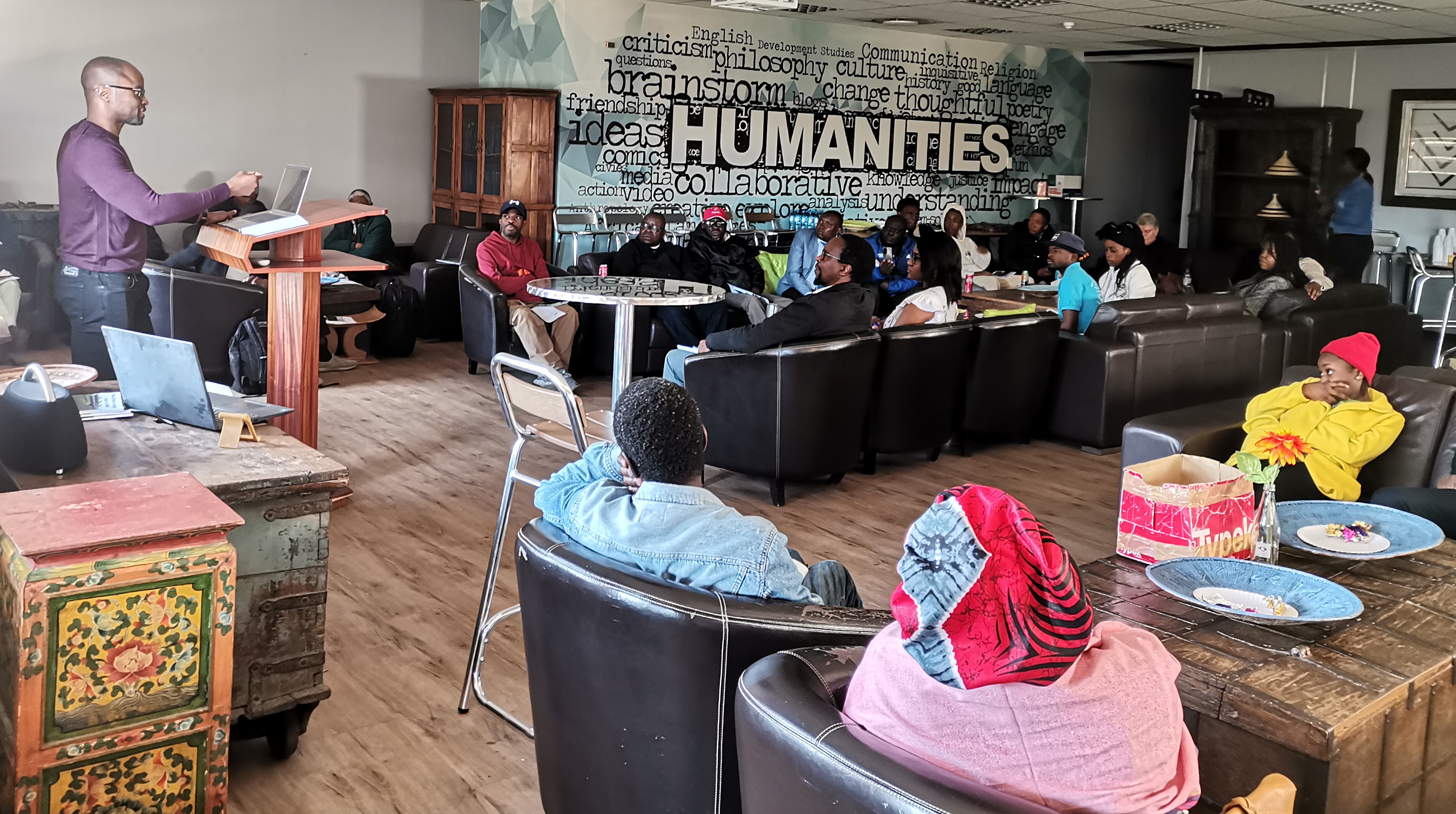HELL AFFAIRS
Zimbabwean Exemption Permit termination ‘is pushing people towards undocumented migration’

A new report on the government’s position on the Zimbabwean Exemption Permits has found that the Department of Home Affairs ‘is pushing people towards undocumented migration by making permits scarcer at a time when people can ill-afford to leave’.
The proposed termination of the Zimbabwean Exemption Permits (ZEPs) is pushing a large number of people to become undocumented, creating pockets of corruption, said Lance Mpofu, one of the researchers for a report published on Saturday by the University of Johannesburg’s Centre for Sociological Research and Practice (CSRP).
The report, titled Neither a Beggar Nor a Thief, states that this “official policy [of the Department of Home Affairs] is pushing people towards undocumented migration by making permits scarcer at a time when people can ill-afford to leave”.
Simba Chitando, lead counsel for the Zimbabwean Exemption Permit Holders Association, said, however, that “the court will not allow a humanitarian crisis to pass through the court”.
Chitando was referring to a ruling of the Pretoria High Court on 28 June that found the cancellation of ZEPs was unlawful, unconstitutional and irrational, labelling it an “unjustified limitation of rights”. The court gave permit holders a 12-month reprieve.
The CSRP report explained that the likelihood of some ZEP holders becoming undocumented was relatively high as “other types of visas are difficult to get, and most ZEP holders will not qualify for visas which allow them to work in South Africa because work visas are based on ‘critical skills’”.
ZEP holders are the most taxed people in the country and the world.
Critical skills visas cover migrants with certain qualifications, which are accredited by tertiary education institutions and registered with professional bodies, councils or boards. They include mid-management roles that need at least a bachelor’s degree or posts related to the engineering professions, requiring a diploma or advanced certificate.

Simba Chitando, lead counsel for the Zimbabwe Exemption Permit Holders Association, at the launch of a report titled ‘Neither a beggar nor a thief’ on 5 August 2023. (Photo: Gaby Ndongo)
According to Claire Ceruti, one of the authors of the CSRP report, a need for critical skills is a utilitarian approach that disregards the humanity of each permit holder and the contributions made by Zimbabweans. Those are contributions that cannot be quantified or separated from the productivity of others.
She said productivity had been improved by skilled Zimbabwean workers occupying critical roles in sectors of the economy, including financial services.
Inefficient migration system
The participants at the launch of the report voiced concerns about the increasing costs and time-bound documentation needed for the applications of alternate permits and visas.
“ZEP holders are the most taxed people in the country and the world,” Chitando said.
While the documentation, such as proof of medical aid for student permits, is difficult to coordinate and expensive to get, “online application has reduced queuing, but has also introduced extra expense and difficulties for those with connectivity problems”, the report noted.
The report adds: “It is therefore becoming increasingly difficult for some people to formalise themselves. This exposes the hypocrisy of government: it rails against undocumented migration but makes it difficult for people to document themselves. Additionally, Zimbabweans were forced to abandon asylum permits and applications when the permits came in, meaning that people who came here seeking asylum are now in limbo.”
There have been instances where Home Affairs has renewed the permits of people who have died and those with criminal records, despite such aspects not aligning with prescribed criteria. This is because of the reluctance of the Department of Home Affairs to renew the ZEPs, explained Chitando.
The reluctance is noticeable in the lack of issuing of permanent residence (PR) status, although migration policy states that the pathway to PR should be afforded after an individual has maintained a valid permit for five years or more.
The report said there was an environment enabling an active discriminatory approach. “People from other places on other visas who have lived in and contributed to the country for less time than many ZEP holders are able to apply for permanent residence.” Such is the case with migrants from developed countries.
Moving forward
Paddington Mutekwe, who is one of the report authors, said government institutions should consider:
- Making it easier for migrants to get documented and facilitating the acquisition of documentation;
- Renewing the permit or automatically transferring permits and restoring asylum seekers’ status without requiring the resubmission of documents; and
- Allowing permit holders to apply for permanent residence as afforded to anyone else and granting people the opportunity to integrate if they wish to do so.
Suggestions the broader population could adopt include:
- Reconsidering the concept of borders and whose borders we are enforcing;
- Fighting for a world that values people above their economic contributions; and
- Uniting the fight by bringing together ZEP holders with all those affected by the documentation crisis as well as communities affected by other forms of poor service delivery.
Siya Qoza, Home Affairs Minister Aaron Motsoaledi’s spokesperson, said Home Affairs would not comment on the report due to its “principled stance” as the ZEP matter is being addressed through legal avenues. DM

















 Become an Insider
Become an Insider
The lack of accountability set by the political leaders of this country has resulted in a “free for all” mentality which is spreading like wild fire!
“The AfCFTA aims to create a single market for goods and services and a liberalized market for goods and services to enhance the movement of capital and natural persons. It is also to aid in the movement of goods and services across the African continent without restrictions”.
South Africa is a signatory and has fulfilled all the necessary steps. Why are we still restricting the movement of African nationals?
No country in the world has open borders and allows unlimited permits, services for migrants. If a south african wants to travel to the eu, us, aus and many other African countries one needs a visa. To work one needs multiple visas. Formalizing migration for any readon is a must.
It’s quiet concerning that as a country we’re being taken to courts by organizations that claim to be representing the unfairly treated Zimbabweans in SA. The question we should be asking is who is funding these legal battles? Why can’t the same organizations take the Zimbabwean government to court for unfairly treating their citizens.
During apartheid South Africans never flocked to Zimbabwe at this rate. They’re over burdening our economy and that’s why we should perhaps start focusing efforts to help fix their country than running away from it. South Africans died fighting for the freedom and also they should find better strategies of fighting for their freedom than settling all over the world.
Most people are benefitting from exploiting Zimbabweans economically hence they want them to remain here. Zimbabweans deserve a better life hence great efforts should be on forcing the Zimbabwean government to change their ways and rebuild the economy.